The technology for finishing MDF boards by skin-finishing has been constantly improving and the quality is continuously increasing. In the beginning, only flat boards could be skinned, the foils were stiff and thick, and the quality of the board was poor. Now, membrane presses make it possible to coat various profiled panels, the foils are more flexible, thinner and perfectly cover the cut-outs, and the adhesives activated by the high temperature in the press are used for the bonding. Modern solutions also make it possible to achieve high-gloss surfaces that were impossible in the past. WoodMatic offers furniture factories an industrial folding press with two work tables for high productivity. Folding machine TM 2680F is designed for the application of PVC, PET, TRF or ABS foils on MDF panels, flat or milled, and is also very suitable for high gloss surfaces.
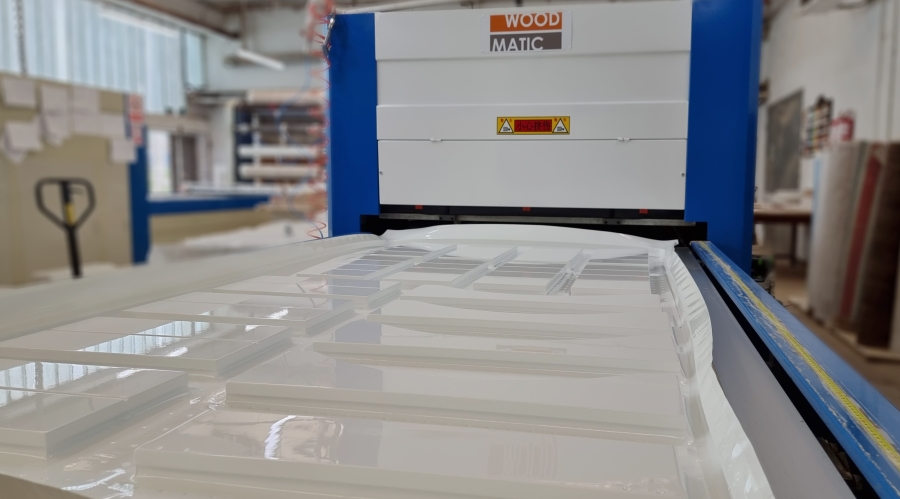
Features of the TM 2680F WoodMatic TM 2680F WoodMatic
The TM 2680F is a membrane press operating on the positive pressure - negative pressure principle, very suitable for finishing embossed (3D) surfaces. The foil to be applied is heated by means of two platens, upper and lower, heated both by thermal oil and by electrical resistors embedded inside them. Thanks to this system, the matting phenomenon of high gloss foils is totally eliminated, resulting in very high quality gloss surfaces.
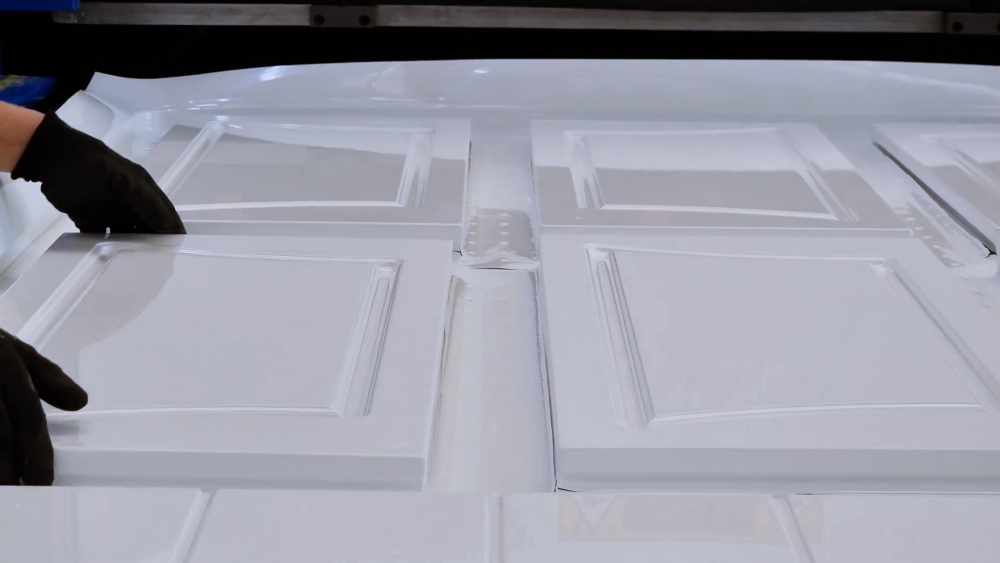
The main features of the press are:
- Full cycle of 2-5 minutes, depending on material applied
- Pressing time max.3min/pressing cycle
- Vacuum pumps made in Germany, Becker & Leypold
- Possibility to press different thicknesses in the same pressing cycle (from 16 mm to 50-60 mm)
- 14-position foil magazine and automatic cut-off rewinder for each work table.
The dimensions of the press are 9600 x 2150 x 2150 mm and each table is 2600 x 1300 x 60 mm. The total weight of the press is 14 tons. The membranes with which the press is equipped as standard are made of silicone and are 3 mm thick. The machine's pistons are coated with a thick layer of hard chromium treated and finished which ensures very good wear resistance. The hydraulic system has been sized and tested at a much higher pressure than the working pressure and is realized with German Becker & Leypold vacuum components and pumps. The vacuum is generated with a high-capacity pump that works synchronized with the hydraulic installation, depending on the working stages. The hydraulic force hydraulic pressure and diaphragm pressing are electronically controlled by a PLC so that the diaphragm has maximum efficiency.
The press is equipped at each working table with a foil roll magazine, with a 14-position automatic slitter rewinder. The dimensions of the magazine are 1800 x 730 x 1180 mm and it weighs 250 kg. Roll length is 1300 mm. The cutting device with blade and counter-blade is made of hardened steel to avoid tearing during cutting. The cutting is pneumatically operated.
The control panel has a touch screen and is assisted by a PLC. It can monitor all press functions, including safety functions.
Advantages of panel finishing with the TM 2680F press
Manufacturing lines that include the TM 2680F press are highly productive, versatile, and the end product is quality. The press allows the simultaneous folding of panels of different thicknesses and milling using foils of different colors, thicknesses and qualities in the same working cycle. The working parameters of the press can be chosen to match the quality of the foil. It is possible to roll panels between 16 and 60 mm thick. A complete working cycle takes no more than 5 minutes, the actual pressing time is 2-3 minutes. The press applies constant pressure to the entire surface being finished, including edges and milled areas, resulting in very high quality panels.
To summarize, the main advantages of using the TM 2680F Folder Press are:
- Reduced working time, with a full cycle in 5 minutes
- High flexibility, using different panel thickness and pattern as well as foils of different colors and thicknesses in one work cycle
- Consistent, high quality pressing
- High productivity thanks to short cycles and good throughput.
A complete folding cycle involves 4 phases
Panel preparation. Finishing furniture by wrapping is not just about press and different foils. Before the panels are pressed, they are cut and machined to the desired shape and pattern. The finishing is done by milling, The CNC the most suitable equipment for series production.
Then it is applied the adhesive which will contribute to a firm and strong hold of the panel film. The liquid adhesive is applied by spraying, which ensures even distribution. The adhesive is a temperature-activated polyurethane adhesive, provided by the heated platens of the press. After the adhesive dries, before being placed on the press tables, the panels are sanded with fine sandpaper to remove the raised, hardened fiber and air bubbles embedded in the spray. The result of milling the MDF is a rough, high-fiber surface that becomes adhesive-loaded and hard, similar to wood. If not removed by this fine sanding, any irregularities will be visible under the foil, spoiling the final appearance of the panel. The sanded and rough sanded panels are laid on movable templates on press tables. Before laying the foil supplied by the foil magazine at the end of each table, the panels are again vacuum-cleaned over the entire surface and in the milled areas, removing the last traces of dust.
The foil is then laid and the table can go to press. The wrapped panels then go into finishing phase where excess foil around the edges is removed with a special knife.
Such presses can be seen at work. By scheduling a visit to Comănești, where WoodMatic is headquartered, you can see them in the production process being integrated into the manufacturing line of the furniture factory belonging to the group. Appointments can be made in contact page of the website or on Facebook. If you are interested, don't miss the opportunity to see the machine in full production.


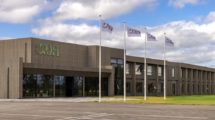
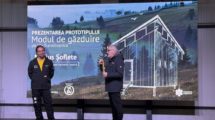

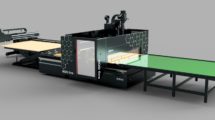
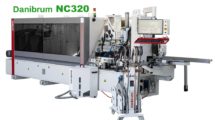
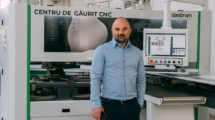
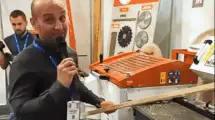
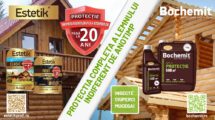

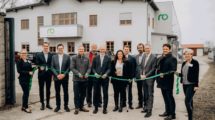
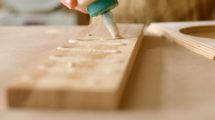

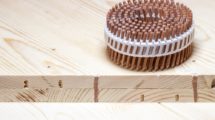

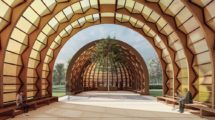
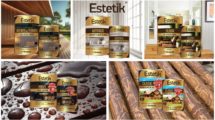
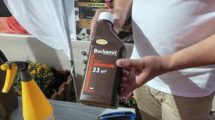
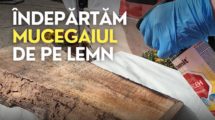


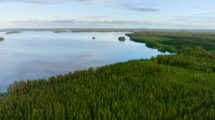
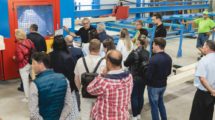
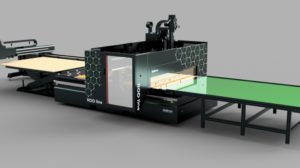
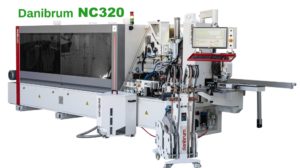
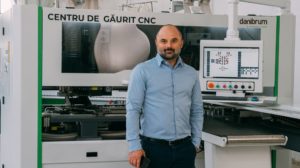
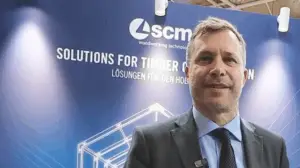
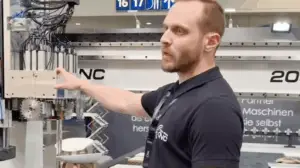
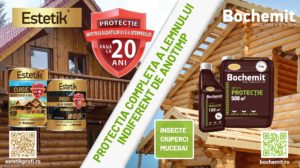
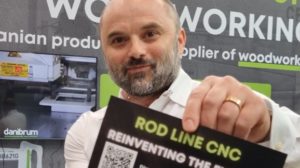
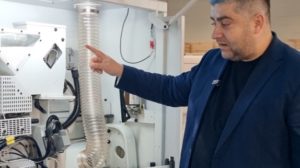
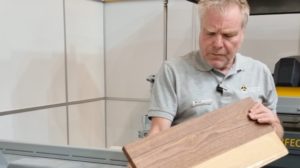



Add comment